Coral reef conservation: absolutely fascinated to hear from CORDAP’s Sofia Blount at an event ‘A Conscious Future’ hosted by Spritzy, natural and organic skincare brand. Led by Spritzy‘s founder Annabel Boom, each panelist’s story were incredibly engaging, yet the standout for me was Sofia Blount. Sofia spoke about her work with The Coral Research & Development Accelerator Platform (CORDAP) and Coral Reef Conservation.
Many thanks to Annabel for inviting myself along with Bronwyn Lowenthal to a fascinating panel discussion last week.
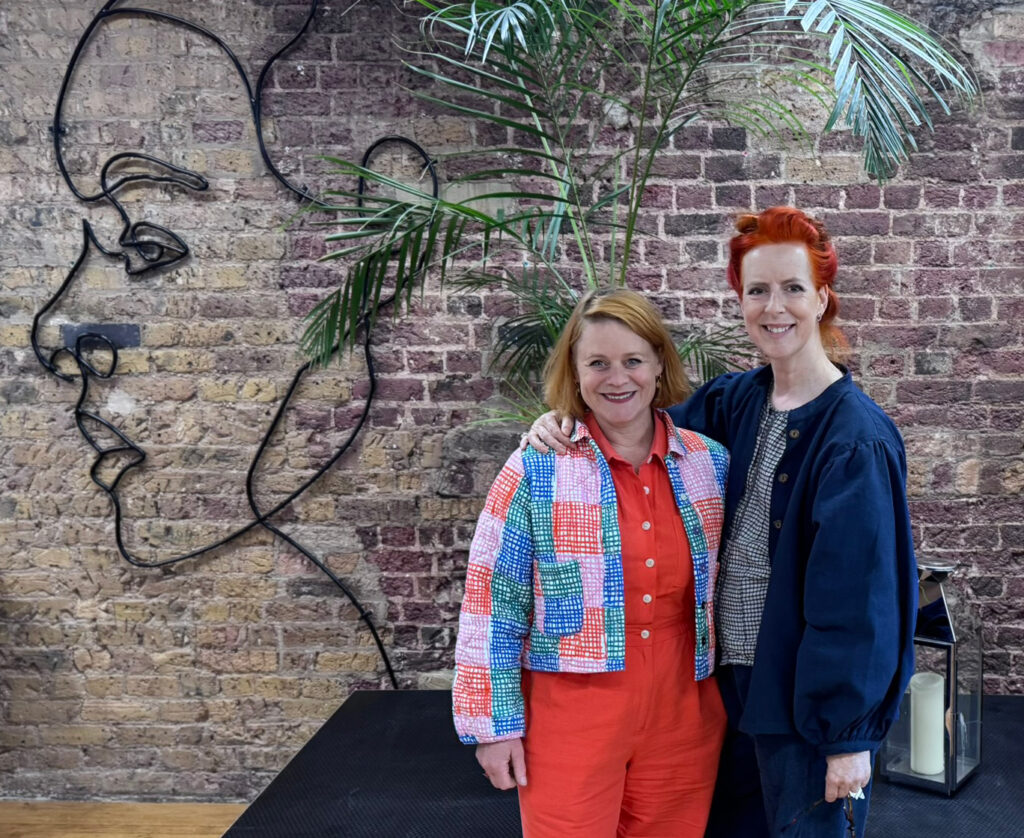
We even find “fertility clinics” for corals, and support a project that is installing underwater speakers in the Caribbean to lure baby corals to degrade reefs – and make reefs great again.
I followed up via instagram and chatted with Carla Lourenço, PhD. Marine Biologist and Communications Lead at CORDAP, who very kindly agreed to chat further about Coral Reef Conservation. Please have a read, and check out the work CORDAP are doing with corals and about what CORDAP is doing across the globe to save them.
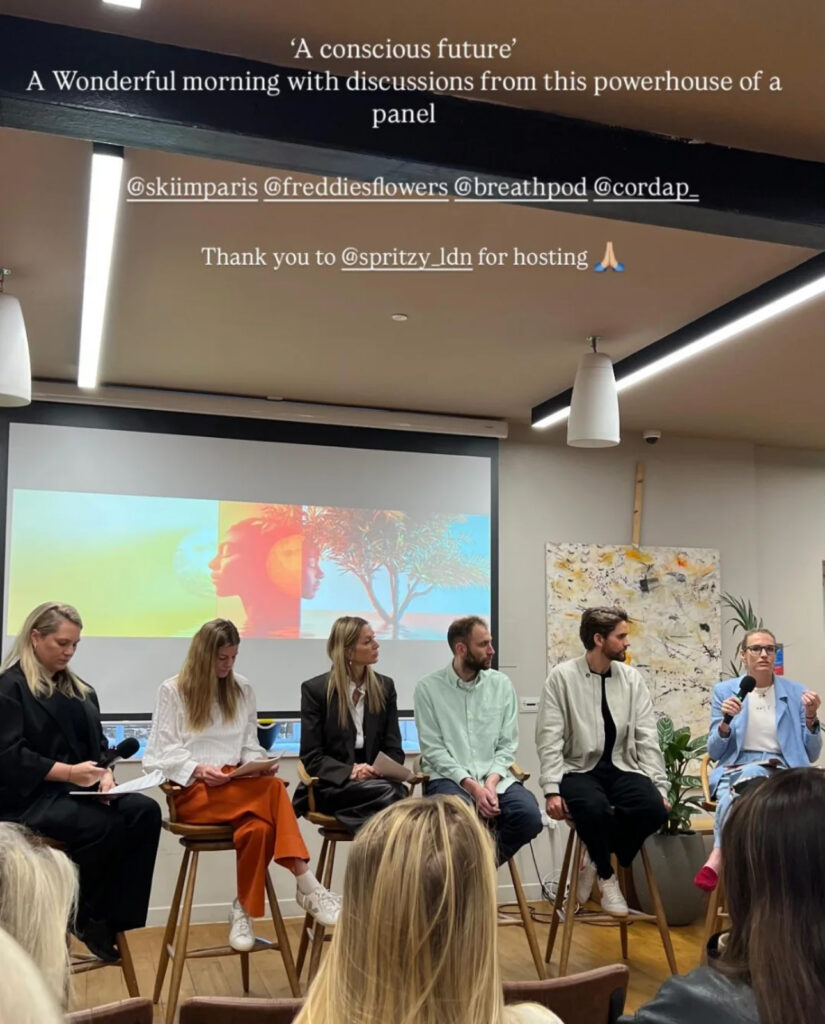
Coral reefs are among the most vital and biodiverse ecosystems on Earth
Coral reefs are among the most vital and biodiverse ecosystems on Earth.
Though they cover less than 0.2% of the ocean floor, they support more than 25% of all marine species, acting as nurseries, feeding grounds, and protective habitats for countless organisms.
They sustain the livelihoods of over one billion people globally. Through fisheries, tourism, and coastal protection, and are estimated to provide ecosystem services worth up to $9.9 trillion per year.
Yet, these irreplaceable systems are in grave danger. Pollution, habitat destruction, bottom-contact fishing, illegal harvest… The threats pile up. The worst of all is definitely rising sea temperatures.
We are currently witnessing the most widespread and severe coral bleaching event ever recorded, triggered by ocean warming due to climate change. The 2023 to present, bleaching event, fuelled by record sea temperatures, is the fourth global event of its kind. And it is affecting both tropical and cold-water corals across all major ocean basins.
As you read this, more than 84% of the world’s coral reefs have experienced bleaching stress. The previous globalcoral bleaching event lasted 2014-2017 and affected 68% of the world’s reefs. Combined with other threats such as pollution, overfishing, destructive coastal development, and diseases like Stony Coral Tissue Loss Disease (SCTLD), we are losing corals at an alarming rate.
If urgent action is not taken, we could lose up to 90% of the world’s coral reefs by 2050.
The Coral Research & Development Accelerator Platform (CORDAP) was created to help stop this trajectory. Launched in 2020 through a mandate from the G20, CORDAP is a global initiative designed to fast-track the development and implementation of next-generation solutions for coral restoration and conservation.
It bridges the gap between research and impact, supporting innovative science, fostering international collaboration, and ensuring that solutions are scalable, locally adapted, and accessible to communities around the world.
The communities who are most affected by losing corals are the ones that are less able to fight for them.
CORDAP’s mission is to fund and enable the most innovative and effective research and development to restore and protect the world’s corals. We focus on translating promising out-of-the-box ideas into real-world interventions and making them available to those who need them most, especially in the Global South, where coral reefs are often most threatened and where local capacity is underfunded.
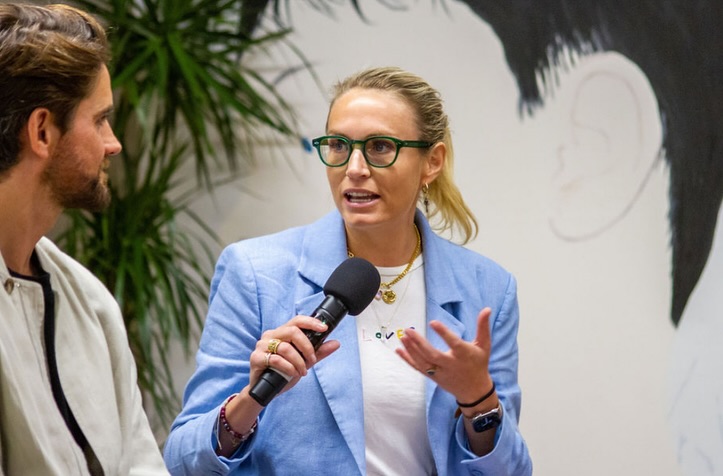
Through our competitive, science-led funding calls, we support projects that range from assisted evolution and coral sexual propagation to AI-driven monitoring, automation in aquaculture, and the development of probiotics to combat coral disease.
Project funding
Since 2022, CORDAP has funded 22 projects in over 20 countries, involving research institutions, NGOs, and community groups across all major reef regions. Our work supports breakthroughs like training national teams to monitor coral spawning in Honduras. Developing scalable interventions for larval settlement in the Mesoamerican Reef, or building capacity in the Dominican Republic to respond to mass bleaching events with innovative coral reproduction techniques. We even find “fertility clinics” for corals, and support a project that is installing underwater speakers in the Caribbean to lure baby corals to degrade reefs – and make reefs great again.
Some good news
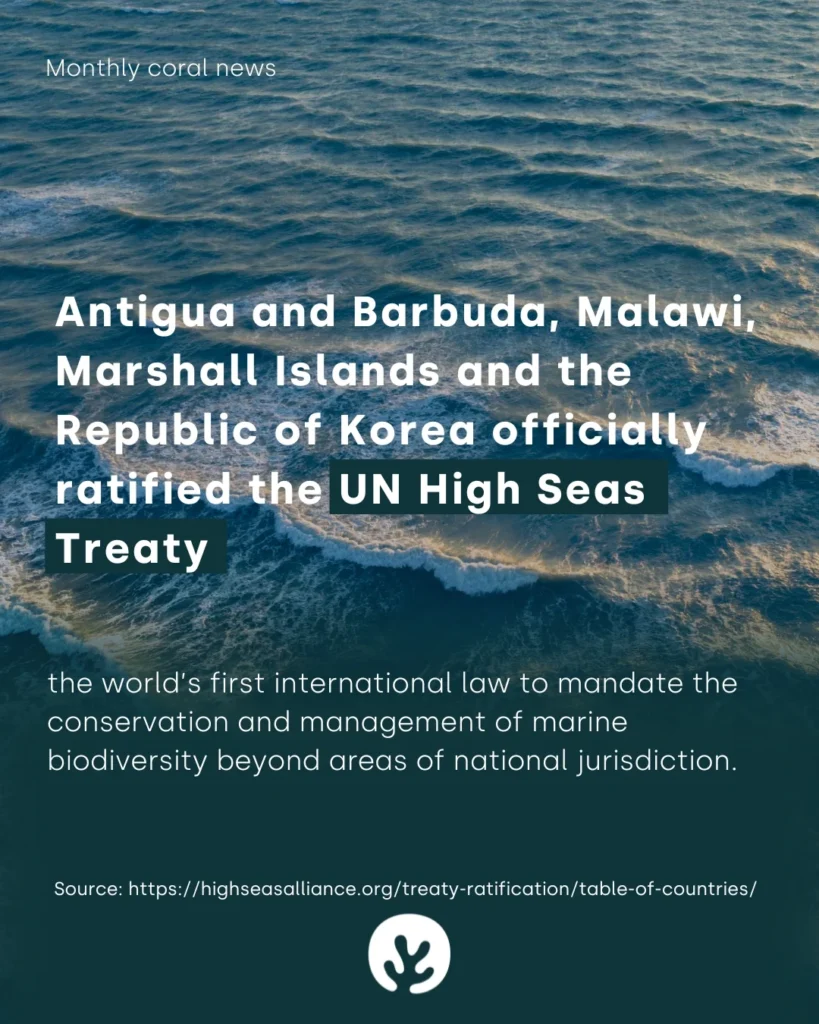
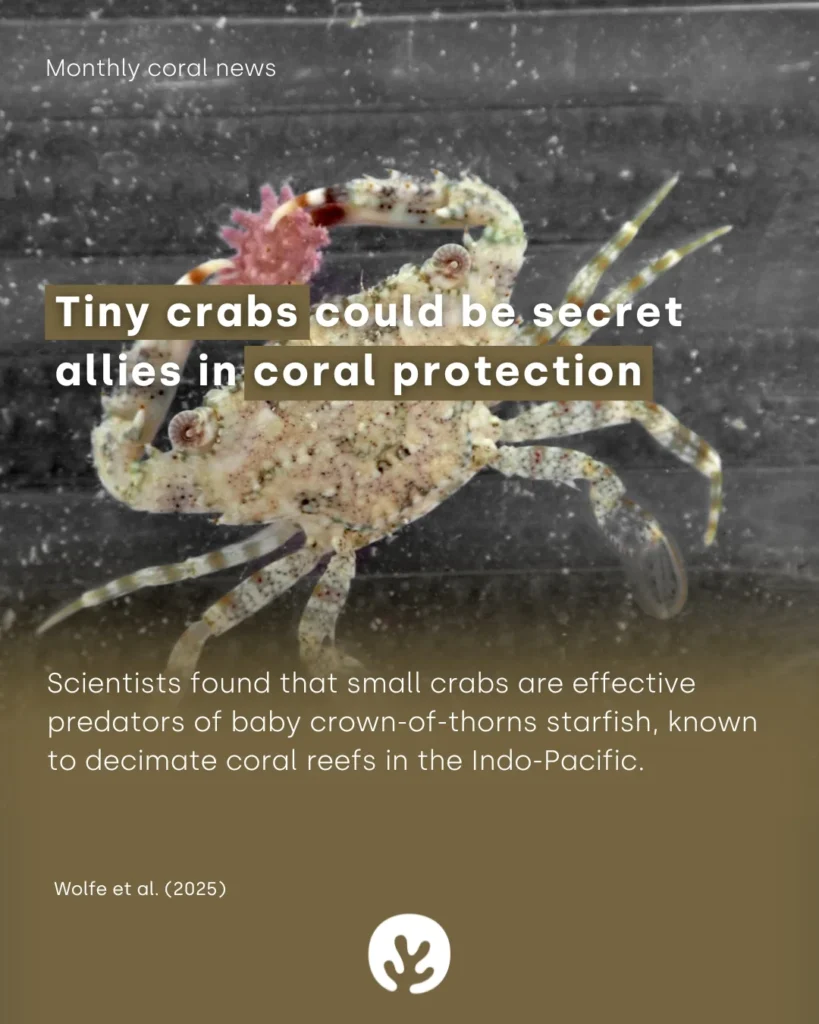
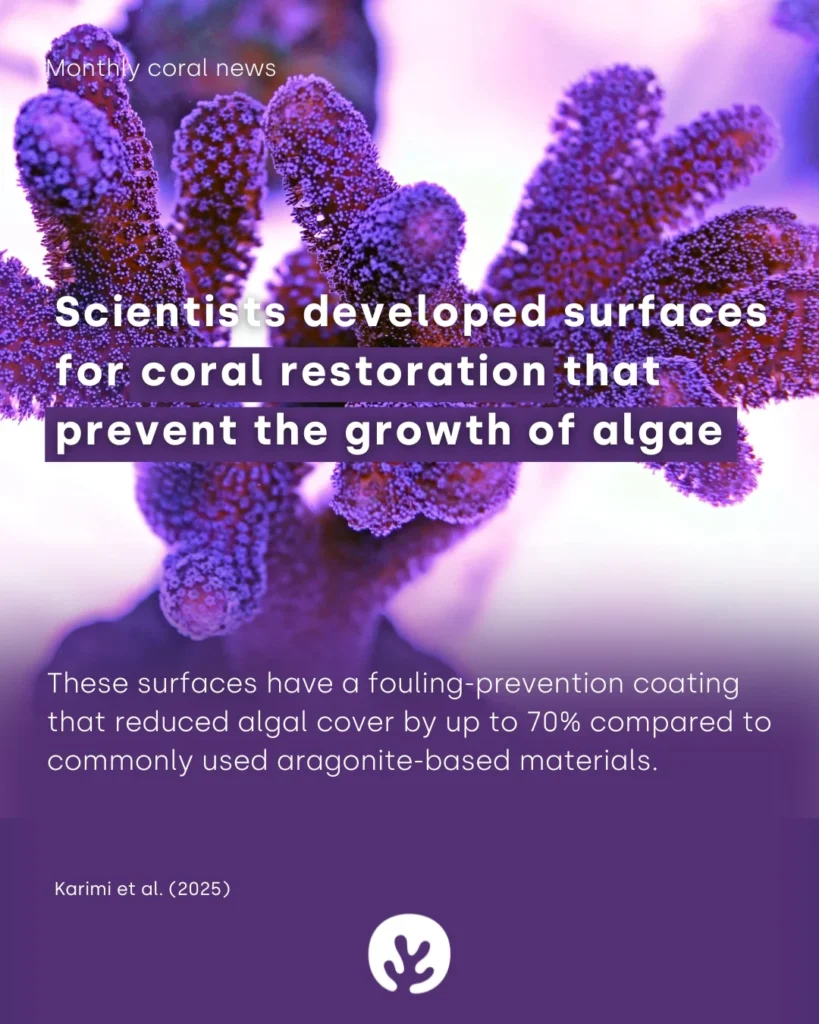
Coral Reef Conservation
But the road ahead is urgent and steep. To continue supporting global coral reef conservation R&D at the scale required, CORDAP must secure $30 million USD per year. At present, we only have 1/3 of what we require. Our work is guided by a commitment to scientific excellence, global equity, and the belief that saving corals is still possible, but only if we act now, together.
Visit CORDAP’s website to learn more about their work, and check the projects they fund: https://cordap.org/projects-awarded/
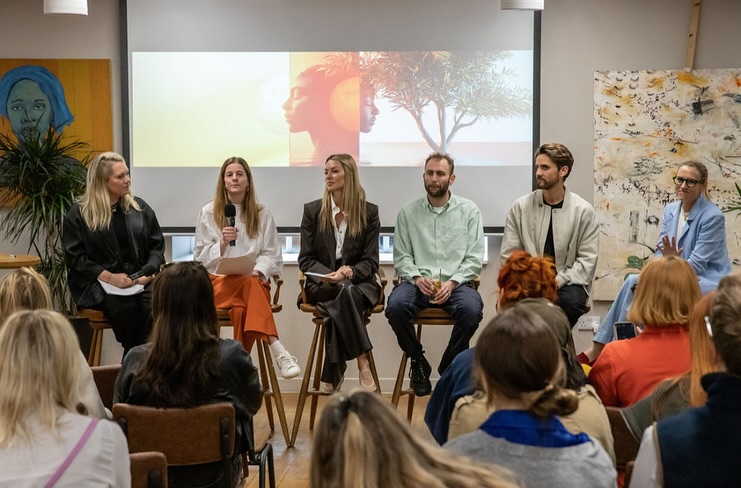
With thanks to Bronwyn Lownethal, Lowie for the invitation, and to all the speakers:
@carosciamma Caroline Sciamma-Massenet @skiimparis, Freddie Garland @freddiesflowers, Stuart Sandeman founder of @breathpod @sofiabluntly @cordap_ @bluemarinefoundation and co-host @poseycollis with Spritzy‘s founder Annabel Boom on the mic.
Coral reef conservation, fascinated to hear from CORDAP’s Sofia Blount at an event ‘A Conscious Future’ hosted by Spritzy, natural and organic skincare brand.
Useful links:
cordap.org A G20 global initiative created to deliver the best science and technology to save corals.


 Farming for the future: How farmers around the world are adapting to a changing climate: Agroecology
Farming for the future: How farmers around the world are adapting to a changing climate: Agroecology

Leave a Reply